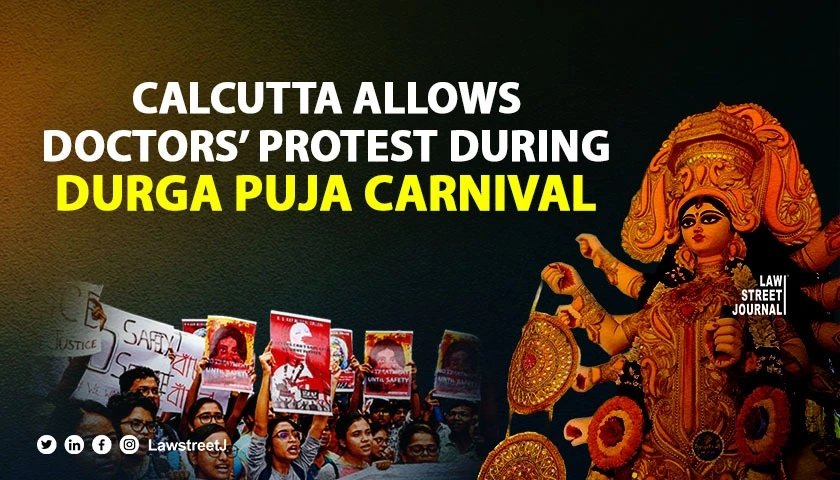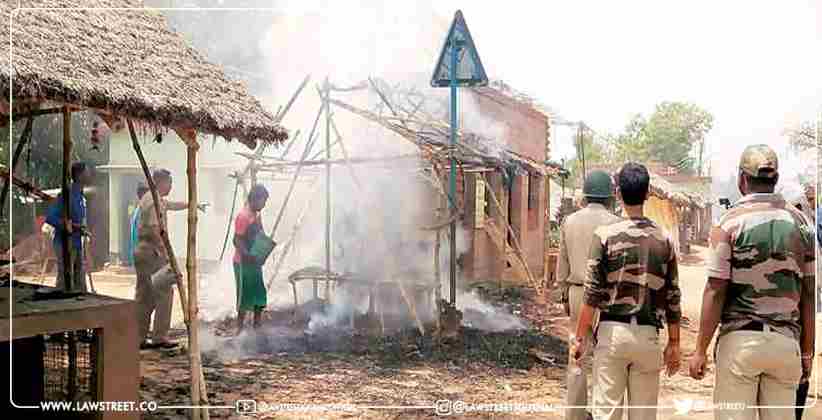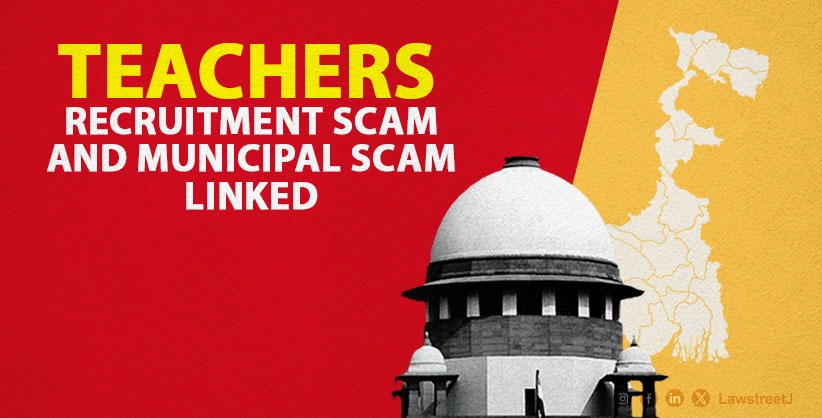Kolkata: The Calcutta High Court has delivered a significant judgment, setting aside prohibitory orders imposed under sections 163(1) and (3) of the Bharatiya Nagarik Suraksha Sanhita (BNSS), 2023, by the Commissioner of Police, Kolkata. These orders were issued to prevent the assembly of junior doctors protesting the brutal rape and murder of a trainee doctor at RG Kar Medical College and Hospital, near the area where the State’s Durga Puja immersion carnival was slated to be held.
Court Upholds Right to Protest Under Article 19, Strikes Down Kolkata’s Ban Amid Durga Puja Festivities
Justice Ravi Krishan Kapur made important observations on the right to protest and the nature of the restrictions imposed. The court addressed a case where an umbrella association of health service doctors and health service associates of West Bengal, along with individual petitioners, challenged the refusal to permit them to conduct a “Droher Carnival” – a Doctors and Citizens Assembly on 15 October 2024.
Addressing the legal framework, the court considered Article 19(1)(a) and 19(1)(b) of the Constitution of India, which guarantees the right to freedom of speech and expression and the right to assemble peacefully without arms. The court’s observations suggest a nuanced approach to balancing these rights with the need for public order.
The court highlighted the importance of the right to protest in a democracy. Justice Kapur stated, “The right to protest is recognized as a fundamental right under the Constitution. This right is crucial in a democracy, which rests on the participation of an informed citizenry in governance.”
It reiterated the principles laid down in previous Supreme Court judgments, including Mazdoor Kisan Shakti Sangathan vs. Union of India & Anr. (2018) and Amit Sahni (Shaheen Bagh) vs. Commissioner of Police & Ors. (2020).
Junior Doctors’ Protest Permitted as Calcutta High Court Cites Fundamental Rights and Limits of Police Powers
The court further observed that “The impugned order severely restricts and reflects an unfettered exercise of discretion, which opens the doors to arbitrariness and is an antithesis to the Rule of Law. The width of the prohibition contained in the impugned order is disproportionate, excessive, and unreasonable.”
Considering the facts and circumstances of the case, the court held that the restrictions on fundamental rights could not possibly achieve any bonafide purpose. Hence, it allowed the writ petition and permitted the petitioners to hold the “Droher Carnival.” The court directed the State respondents to make necessary security arrangements to ensure no breach of peace occurs during the event.
Advocates Bikash Ranjan Bhattacharyya, Sr. Adv., Samim Ahammed, Tapas Maity, Siddhartha Sankar Mondal, Satwick Majumdar, Saptarshi Banerjee, Rajit Lal Maitra, Arka Maiti, Ambiya Khatoon, Saloni Bhattacharjee, and Nazimuddin Siddique appeared for the Petitioners. Mr. Kishore Dutta, Ld. A.G., Sr. Adv., Amitesh Banerjee, and Debangshu Dinda appeared for the State of West Bengal.
Case Title: Joint Platform of Doctors & Ors. Vs. State of West Bengal & Ors.





![Calcutta High Court conducts late-evening hearing, orders release of lawyer arrested inside court [Read Order]](/secure/uploads/2023/12/lj_4146_Court_lawyers_arrest.jpg)
![Indian Courts this Week: Law Street Journal's Weekly Round-Up of SC & HCs [Jan 1 - Jan 6]](/secure/uploads/2024/01/lj_9050_WhatsApp_Image_2024-01-06_at_12.07.10_PM.jpeg)




